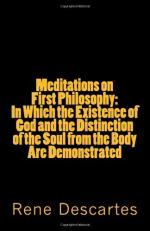But among those stars I perceive the moon, which seems to share with the sun the care and office of lighting us. She appears at set times with all the other stars, when the sun is obliged to go and carry back the day to the other hemisphere. Thus night itself, notwithstanding its darkness, has a light, duskish indeed, but soft and useful. That light is borrowed from the sun, though absent: and thus everything is managed with such excellent art in the universe that a globe near the earth, and as dark as she of itself, serves, nevertheless, to send back to her, by reflection, the rays it receives from the sun; and that the sun lights by means of the moon the people that cannot see him while he must light others.
It may be said that the motion of the stars is settled and regulated by unchangeable laws. I suppose it is; but this very supposition proves what I labour to evince. Who is it that has given to all nature laws at once so constant and so wholesome, laws so very simple, that one is tempted to believe they establish themselves of their own accord, and so productive of beneficial and useful effects that one cannot avoid acknowledging a marvellous art in them? Whence proceeds the government of that universal machine which incessantly works for us without so much as our thinking upon it? To whom shall we ascribe the choice and gathering of so many deep and so well conceited springs, and of so many bodies, great and small, visible and invisible, which equally concur to serve us? The least atom of this machine that should happen to be out of order would unhinge all nature. For the springs and movements of a watch are not




